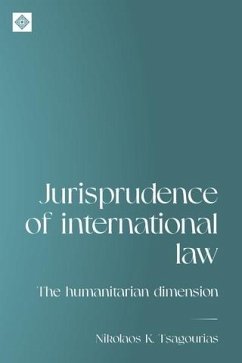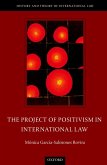Now available as an eBook for the first time, this 2000 book from the Melland Schill series looks at the humanitarian intervention at the centre of legal, political and ethical discourse as the 'century of violence' ended. Increasing recourse to such a doctrine was occasioning widespread reflection on the big questions of how and why states behave, whether there is a meaningful concept of an international community, how fundamental values are determined and how they relate to each other. Jurisprudence of international law poses challenges to thinking and argumentation, and proposes a redescription of humanitarian intervention.
The book presents and evaluates the bearing of legal theories - natural law, positivism, realism and critical theory - on humanitarian intervention and how the legal framework, in particular Articles 2(4) and 51 of the United Nations Charter, is moulded by theoretical arguments and influences state practice.
Tsagourias develops a discursive model where the value of human dignity is attained through dialogue, reflection, and projection embedded in a sense of responsibility and human solidarity. The book revisits humanitarian intervention from the perspective of human dignity by re-combining theory, doctrine and practice within a discursive process.
This book is written for theorists and practitioners of both international law and international relations.
The book presents and evaluates the bearing of legal theories - natural law, positivism, realism and critical theory - on humanitarian intervention and how the legal framework, in particular Articles 2(4) and 51 of the United Nations Charter, is moulded by theoretical arguments and influences state practice.
Tsagourias develops a discursive model where the value of human dignity is attained through dialogue, reflection, and projection embedded in a sense of responsibility and human solidarity. The book revisits humanitarian intervention from the perspective of human dignity by re-combining theory, doctrine and practice within a discursive process.
This book is written for theorists and practitioners of both international law and international relations.
Dieser Download kann aus rechtlichen Gründen nur mit Rechnungsadresse in A, D ausgeliefert werden.









